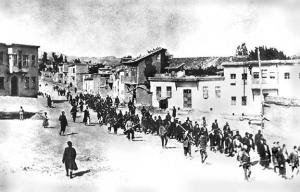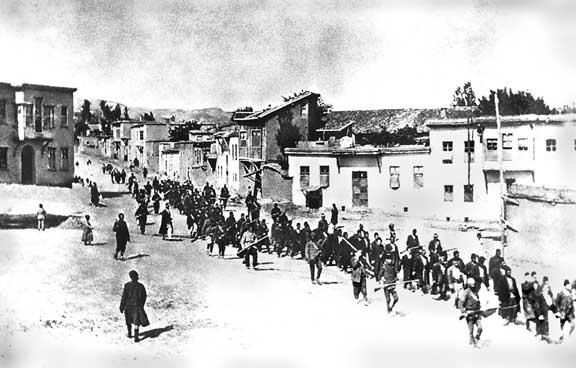Last year, over the weekend of October 27th and 28th, I attended a conference on Memory Laws at Columbia University for my class on the Politics of History and Reconciliation. I thought I’d share some of my big takeaways.
There are lots of types of memory laws.

Before the conference, I had really only thought of memory laws in the context of countries like Poland, which I understood to be implementing laws to criminalize narratives of the past that diverge from nationalist canon. I quickly learned that similar laws exist in countries across the world, but that they come in many different forms. Germany has made it illegal to deny the Holocaust through a positive memory law, positive in this case not meaning it was necessarily a good law, but rather that it affixed a certain narrative of the past rather than rejecting one. Some countries use general laws in lieu of formal memory laws. A key example is Turkey’s Article 301 that bans insults to Turkishness—a vague and arbitrary law which has been used to suppress debate about the Armenian Genocide. The conference speakers even considered Virginia’s law against removing local Confederate monuments without state approval to be a form of memory law.
Memory laws are never a good idea.
Even when enacted for ostensibly benevolent reasons, they always yield unintended consequences. Sometimes when the state is trying to do right by acknowledging past wrongs—like Germany and the Holocaust or France and the slave trade—it takes the past out of the domain of history and (further) politicizes it. In certain cases, the consequences actually work in favor of the criminalized narrative, like Israel’s attempt to ban the commemoration of Nakba Day by Palestinians mourning the loss of their land in the 1948 war. This particular law not only proved ineffective in its current form, it also circulated the Palestinian narrative more widely within and beyond Israel in the attempt to suppress it. Ultimately, as lawyer Jonathan Bush remarked, courts are not the ideal place to debate history. Legislatures are no better.
There is a role for historians as public intellectuals and activists in resisting memory laws and working to establish shared understandings of the past.
Several of the speakers themselves were targets of memory laws. Their research into the past wrongdoings of countries, from the Holocaust to the Armenian Genocide, had earned them the ire of nationalist politicians. Despite the new risks they faced while doing research and sharing it at public lectures, they persisted. It would be far easier for the scholars just to move onto new topics with archives in countries not actively hostile towards them. Yet they refuse to cede the past to nationalists and populists who seek to exploit history for political ends. When the question was raised of whether there is a right to memory, it was noted that there was nothing in “hard law” but that it was emerging as a right in the discourse of international law. These historians are on the front lines of that struggle.

3 replies on “Crimes of Memory: Reflections from a Conference on Memory Laws”
I kind of knew this was a thing (I definitely knew about Germany) but I didn’t know it had a name. Is there anything on the books like this in the US, besides the Virginia example? Because I feel like here it’s more of an unspoken social law than anything in writing. Which area of the country you’re in determines how much backlash your “version” of history will receive if it varies too much from the “agreed upon timeline”.
And where do classified military actions fall in relation to this? The Navajo Code Talkers of WWII weren’t allowed to talk about the details of their service until 23 years after the end of the war when the information was declassified. Understandable as it would have represented a breach in national security had the same method needed to be used again, but for the duration of the program and the 23-year interim the US government essentially denied the existence of this part of history. Does that count as a memory law with a time limit?
Hmm… good questions. I can’t come up with anything else in the US off the top of my head, but I imagine there are some like the VA one that don’t come to mind immediately. Maybe you could think of Texas requiring the entire state to use a standardized textbook as a de facto memory law. It doesn’t mandate a certain memory of events, but it does essentially mean that textbooks that are used nationwide meet the approval of whoever in Texas gets to choose and influence the book.
I think in general memory laws are less obvious and less prevalent in the US because the Supreme Court has been pretty robust in its interpretation of the First Amendment.
As for classified information like the Code Talkers or FBI files, I don’t think they fall under this. Government secrets prevent historians (and archivists) from being able to study those events and function to suppress public knowledge of them, but they don’t legally protect or forbid a certain narrative. That’s its own separate category of challenges for historians, but certainly one worth raising in a discussion of government’s influence on interpretations of history.
I do think my reasoning here has a weakness in that you could say that the government legally restricted access to certain FBI files protects the narrative of a good guy America during the Cold War. It feels like there’s a distinction but I’m having some trouble laying my finger on it.